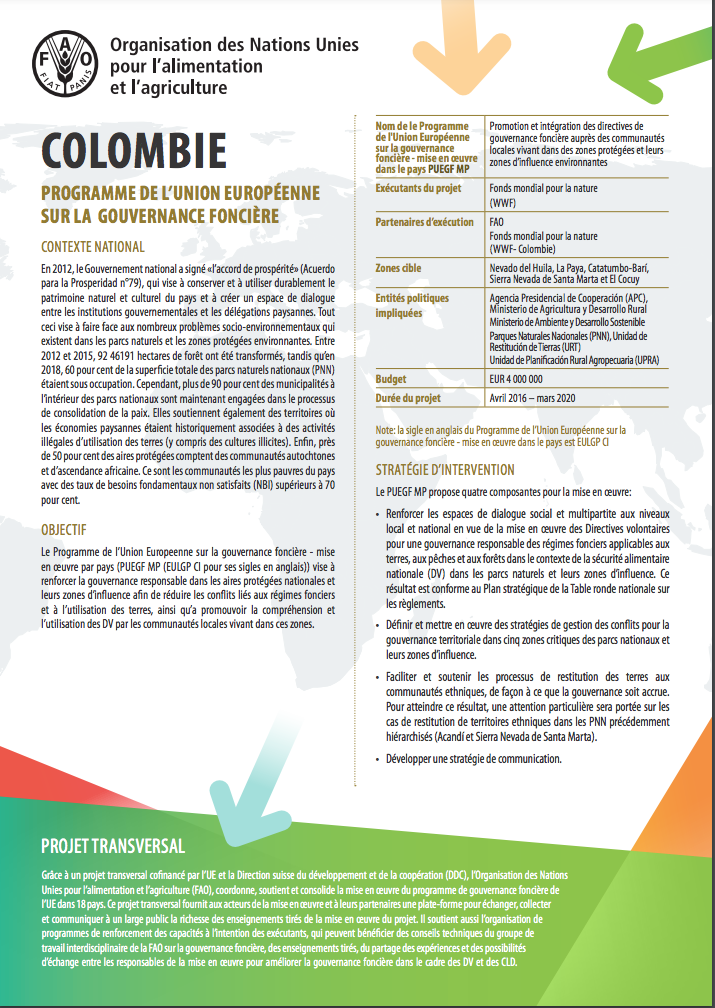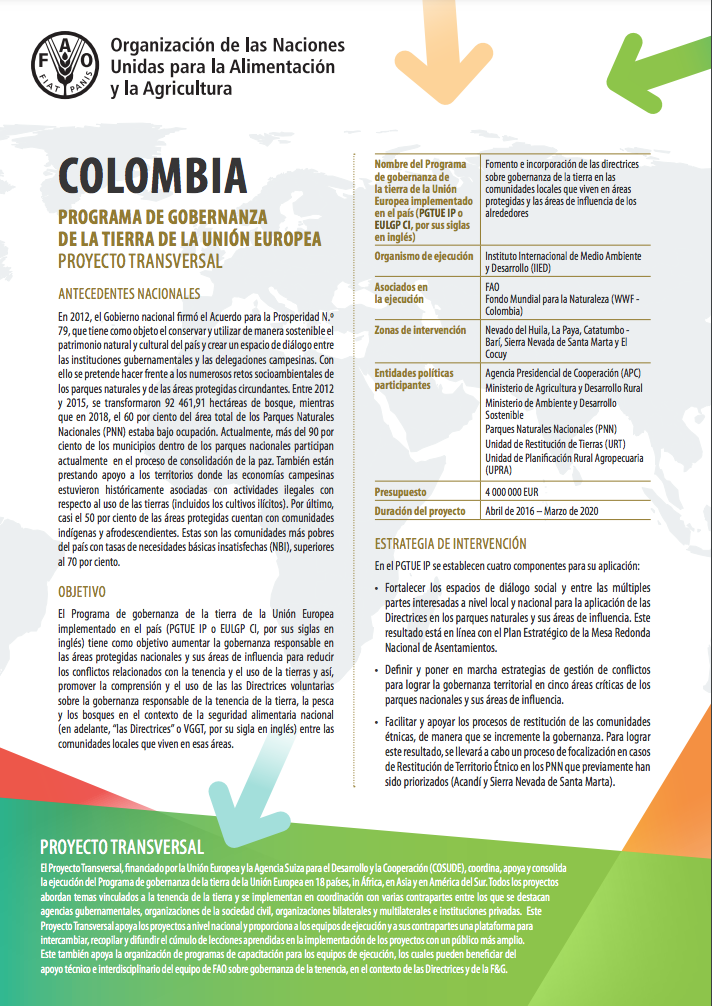Focal point
Location
The Food and Agriculture Organization of the United Nations leads international efforts to defeat hunger. Serving both developed and developing countries, FAO acts as a neutral forum where all nations meet as equals to negotiate agreements and debate policy. FAO is also a source of knowledge and information. We help developing countries and countries in transition modernize and improve agriculture, forestry and fisheries practices and ensure good nutrition for all. Since our founding in 1945, we have focused special attention on developing rural areas, home to 70 percent of the world's poor and hungry people.
Members:
Resources
Displaying 41 - 45 of 5073Restoration in Action Against Desertification. A manual for large-scale restoration to support rural communities’ resilience in Africa's Great Green Wall.
This publication supports processes related to rural communities’ resilience in implementing land restoration of the Great Green Wall Programme on the ground. It serves a dual purpose of consolidating biophysical operations and socio-economic assessments, and is mainly built on five-year interventions and practical experiences gathered through Action Against Desertification. The first part of the publication is a practical manual expressly created for stakeholders, partners, non-governmental organizations and community-based organizations.
Évaluation des ressources forestières mondiales. Rapport Guinée
Depuis 1946, la FAO assure un suivi des ressources forestières mondiales tous les 5 à 10 ans. Les évaluations des ressources forestières mondiales (FRA) sont désormais produites tous les cinq ans afin de fournir une approche cohérente pour décrire les forêts du monde et leur évolution. FRA est un processus piloté par les pays et les évaluations reposent sur les rapports préparés par les correspondants nationaux nommés officiellement.
Support transversal de l'UE à la mise en oeuvre dans les pays - Colombie
En 2012, le Gouvernement national a signé «l’accord de prospérité»(Acuerdo para la Prosperidad n°79), qui vise à conserver et à utiliser durablement le patrimoine naturel et culturel du pays et à créer un espace de dialogue entre les institutions gouvernementales et les délégations paysannes. Tout ceci vise à faire face aux nombreux problèmes socio-environnementaux qui existent dans les parcs naturels et les zones protégées environnantes.
Apoyo transversal de la UE a la implementación del país - Colombia
En 2012, el Gobierno nacional firmó el Acuerdo para la Prosperidad N.o 79, que tiene como objeto el conservar y utilizar de manera sostenible el patrimonio natural y cultural del país y crear un espacio de diálogo entre las instituciones gubernamentales y las delegaciones campesinas. Con ello se pretende hacer frente a los numerosos retos socioambientales de los parques naturales y de las áreas protegidas circundantes.
Land Degradation Neutrality in Small Island Developing States. Briefing Note
Many Small Island Developing States (SIDS) have committed to establishing national voluntary LDN targets. By establishing LDN targets, SIDS have defined their ambitions and key priorities to address land degradation. The LDN target setting process allowed national stakeholders to systematically analyze the causes and effects of land degradation and to come up with evidence-based decisions on what is desirable and feasible to avoid, reduce or reverse land degradation by 2030.










